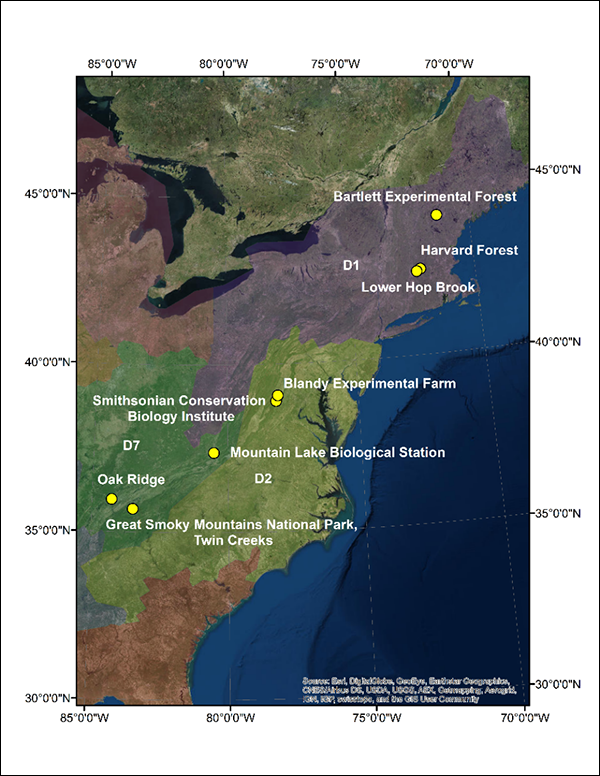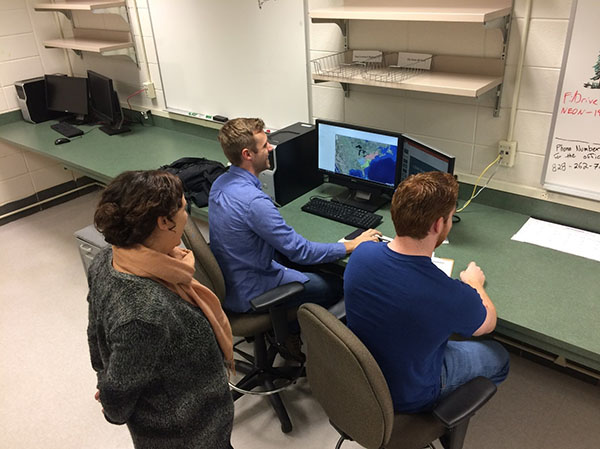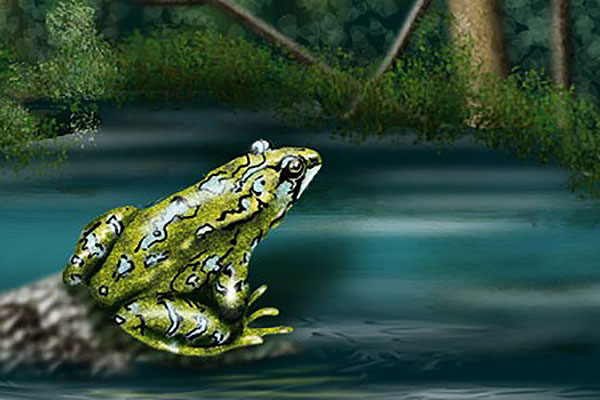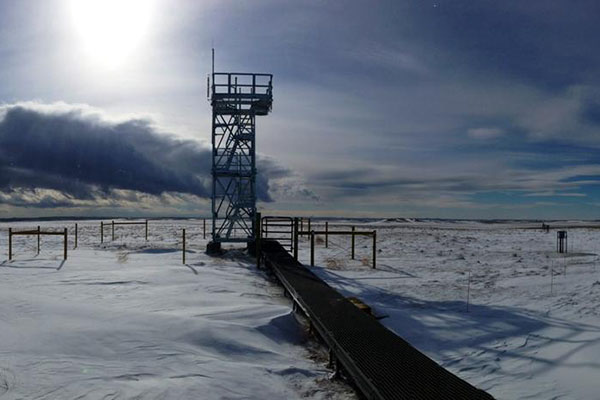BOONE, N.C. — Appalachian State University’s Dr. Jessica Mitchell has received a Macrosystems Biology Early Career Award, which includes $288,851 in funding, through the National Science Foundation’s (NSF) Macrosystems Biology Program to complete biodiversity mapping in the eastern United States. Mitchell is assistant professor in the university’s Department of Geography and Planning with affiliate status in the Department of Geological and Environmental Sciences.
Senior personnel for the grant include Dr. Mike Madritch, associate professor in and assistant chair of Appalachian’s Department of Biology, and Dr. Nancy Glenn, professor in Boise State University’s Department of Geosciences.
According to Mitchell, documenting dimensions of biodiversity change means integrating. She said, to date, continental- and global-scale plant diversity mapping has been based on occurrence data, biased by uneven sampling and narrowly focused only on the total number of species observed.
“Vegetation diversity occurs along a range of temporal, biological and spatial scales — from genes to species, ecosystems and global biodiversity. Patches or corridors of biodiversity across a local landscape can reflect areas where fine-scale patterns of species diversity are mechanistically related to broad-scale dynamics as represented by environmental variables,” Mitchell said.
The study, she said, will demonstrate a method for measuring biodiversity from integrated National Ecology Observatory Network (NEON) field and Airborne Observation Platform (AOP) datasets collected in the summer of 2016 at eight sites along a latitudinal gradient in eastern U.S. temperate, broadleaf and mixed forests. These sites include the Bartlett Experimental Forest in Bartlett, New Hampshire; the Harvard Forest in Petersham, Massachusetts; Lower Hop Brook in northeastern Massachusetts; the Blandy Experimental Farm in Clarke County, Virginia; the Smithsonian Conservation Biology Institute near Front Royal, Virginia; the University of Virginia’s Mountain Lake Biological Station in southwestern Virginia; the Oak Ridge National Laboratory in Oak Ridge, Tennessee; and the Twin Creeks site in the Great Smoky Mountains National Park.
“The data will be used to test the extent to which local patterns of vegetation diversity measured in the field are described by optical and structural diversity measurements directly obtained from AOP imaging spectroscopy and three-dimensional laser scanning data; relatable to broader scale natural variables; and variable across a macroscale gradient,” she said.
In her commentary on the project, Mitchell writes, “A two-year workshop will be hosted at Appalachian for faculty and students across a network of primarily undergraduate institutions (PUIs) through collaboration with the Ecological Research as Education Network (EREN). The workshops will generate educational tutorials and assessment tools that can be integrated into spatial ecology coursework. The project also aims to develop value-added biodiversity map products that will be made available to NEON data users and larger remote sensing and terrestrial ecology communities.”
Two undergraduate students majoring in geography with a concentration in geographic information systems at Appalachian will be involved with the project. Mitchell is also currently recruiting an Appalachian graduate student and a postdoctoral fellow for the research team. The two undergraduates are Shane M. Sosko, of Fayetteville, and Darek G. Olsen, a native of Hope Mills.
About the Department of Geography and Planning
The Department of Geography and Planning promotes the understanding of the spatial dimensions of human behavior within the physical and cultural systems of the earth, and the role of planning in achieving improvement in those systems. The department offers degrees in geography and in community and regional planning. Learn more at https://geo.appstate.edu.
About the Department of Geological and Environmental Sciences
Located in Western North Carolina, Appalachian State University provides the perfect setting to study geological and environmental sciences. The Department of Geological and Environmental Sciences provides students with a solid foundation on which to prepare for graduate school or build successful careers as scientists, consultants and secondary education teachers. The department offers six degree options in geology and two degree options in environmental science. Learn more at https://earth.appstate.edu.
About Appalachian State University
As a premier public institution, Appalachian State University prepares students to lead purposeful lives. App State is one of 17 campuses in the University of North Carolina System, with a national reputation for innovative teaching and opening access to a high-quality, cost-effective education. The university enrolls more than 21,000 students, has a low student-to-faculty ratio and offers more than 150 undergraduate and 80 graduate majors at its Boone and Hickory campuses and through App State Online. Learn more at https://www.appstate.edu.
What do you think?
Share your feedback on this story.















